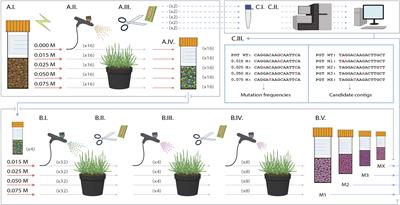EDITORIAL
Published on 30 Mar 2021
Editorial: Fungal Wheat Diseases: Etiology, Breeding, and Integrated Management
doi 10.3389/fpls.2021.671060
- 18,771 views
- 36 citations
48k
Total downloads
220k
Total views and downloads
EDITORIAL
Published on 30 Mar 2021
ORIGINAL RESEARCH
Published on 11 Feb 2021

ORIGINAL RESEARCH
Published on 13 Jan 2021

ORIGINAL RESEARCH
Published on 09 Dec 2020

ORIGINAL RESEARCH
Published on 23 Nov 2020

REVIEW
Published on 19 Nov 2020

METHODS
Published on 16 Sep 2020

REVIEW
Published on 11 Sep 2020

ORIGINAL RESEARCH
Published on 28 Aug 2020

ORIGINAL RESEARCH
Published on 26 Aug 2020

ORIGINAL RESEARCH
Published on 18 Aug 2020

ORIGINAL RESEARCH
Published on 30 Jul 2020

